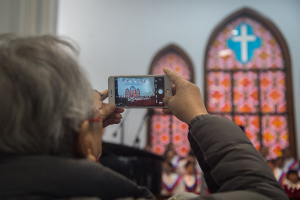Pro-life group demands gov't investigate covert network trafficking abortion pills into the US

A pro-life group is calling on Congress and drug enforcement agencies to take action amid reports that organizations in Mexico are funneling abortion pills into states that have banned their use.
Kristan Hawkins, president of Students for Life Action, the activist division of the pro-life group Students for Life of America, has demanded in a letter to members of Congress that they address the issue following a "shocking new report" about a "drug cartel at the Mexican border" that is shipping abortion-inducing pills into the U.S.
The group wants Congress to instruct the U.S. Drug Enforcement Administration and the Federal Bureau of Investigation to investigate drug crimes involving abortion pills.
The SFLA president called on Congress to require the Food and Drug Administration and the Environmental Protection Agency to conduct a new impact study on chemical abortions, given the widespread and sometimes illegal use of the pills.
As The Washington Post reported last week, several covert networks are running a pipeline through Mexico to deliver abortion pills to women in states that have banned abortion after the overturning of Roe v. Wade in June.
The abortion pill suppliers are funded anonymously, reportedly securing the drug for $1.50 a dose from international pharmacies or free via donations. An unnamed group in the U.S. then receives the pills through the mail and sends them to pregnant women seeking to abort their babies.
Las Libres, one of the many Mexican groups involved in the illegal scheme, told The Washington Post that its organization alone is “on track to help terminate approximately 20,000 pregnancies this year in the United States.”
“That amounts to about 20 percent of all legal abortions that took place in 2019 in the 13 states where abortion is now almost entirely banned,” The Washington Post reported.
Sandra Cardona Alanís, the leader and co-founder of Red Necesito Abortar, another Mexico-based group supplying abortion pills, said that once her group gets the pills to the U.S., “they can distribute them across the whole country.”
“As deadly as the two-pill regiment that the FDA allows can be, the chemical abortion pills sold at the border can carry an even greater risk as some will sell only one pill, saving them money but raising the risks,” Hawkins wrote in SFLA’s letter to lawmakers.
“One need only look at other drug cartel efforts to understand the tremendous risk to women who may not be taking the drugs they think they ordered and may not survive the experience, not to mention the impact on the preborn.”
Hawkins stressed that the safety risks and the strain chemical abortions place on the U.S. healthcare system warrant a congressional response. She also cited the need for an investigation into possible environmental concerns due to the improper disposal of aborted human remains, linking to a column she wrote for The Washington Times in 2020.
As Carole Novielli reported for the pro-life group Live Action in May, women who undergo chemical abortions typically take the pills at home and dispose of their babies’ remains themselves. The pro-life researcher noted that this likely saves abortion facilities money they would have spent hiring a waste disposal company to remove the remains.
According to a 2015 study titled "Incidence of Emergency Room Department Visits and Complications After Abortion,” chemical abortions have a higher complication rate than surgical ones.
The study analyzed data from 2009 and 2010 to assess the abortion complication rate for California women who had abortions through Medicaid and women who were treated at the emergency room instead of the clinic.
Researchers found that the complication rate was 5.2% for women who took the abortion pill compared to 1.3% for women who had a first-trimester surgical abortion. The major complication rate for the abortion pill was 0.31% in contrast to 0.16% for first-trimester surgical abortions.
Samantha Kamman is a reporter for The Christian Post. She can be reached at: samantha.kamman@christianpost.com.



























